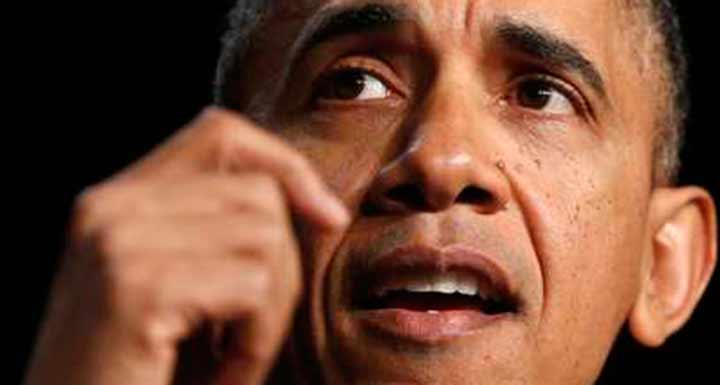
Majority of Miami Cubans: End the Embargo
A few weeks ago, I tried to make sense of a Miami Herald article reporting on a poll about the views of Cuban Americans in Miami regarding U.S. policy toward Cuba. The poll was conducted for the paper by a private research firm, Bendixen and Amandi International. It included 400 Cubans registered to vote in Miami-Dade.
I argued that, beyond the seemingly contradictory results and the focus on the finding that a majority of Cuban Americans registered voters continue to favor the embargo, the most significant finding of the whole survey was this: Within the Cuban community, the rising–U.S. born Cuban Americans, younger Cubans, recent arrivals–are precisely those most likely to oppose the embargo.
Now, a brand-new survey conducted by Florida International University not only strongly confirmed that point but also found that the number of Miami Cubans who oppose the embargo now exceeds those who favor it by 52 to 48 percent.
The difference between the two studies on support for the embargo probably results mainly from the fact that Bendixen-Amandi polled only registered voters while the FIU sample included all Cubans in Miami-Dade County. Previous surveys have shown that registered voters tend to support the embargo more strongly than other Cubans. Also, Bendixen-Amandi sampled 400 while FIU polled 1,000. All other things being equal, smaller samples are prone to larger errors.
That said, the two studies actually don’t contradict each other but show two sides of the Cuban American coin. Bendixen-Amandi’s findings reflect the feelings of the Cuban American political class, who have the most influence on U.S. Cuba policy. The FIU study is a picture of the Cuban American population as a whole, which includes a vast number of people disenfranchised by dint of their immigration/legal status or by their own choice. The tensions between two groups, old guard and more recently arrived Cubans, on a number of issues including the embargo, is palpable across the community.
One of the advantages of the FIU poll is that it has been conducted in basically the same form several times over more than twenty years. That allows for teasing out trends. And the trend shown by successive FIU Cuba polls don’t require much teasing out. In 1991, among Cuban Americans in Miami-Dade, 87 percent supported the embargo. In 1997, support was down to 78 percent. By 2004 it had dipped to 66 percent, still a two-thirds majority. Between 2004 and 2011, it went down to 56 percent. The 2014 figure of 48 percent is the lowest yet and the first time those opposing the embargo are more than those supporting it.
The main fact that emerges from this latest FIU poll is that in 2014 the embargo has an increasingly narrow base of public support which no longer includes even the majority of Miami Cubans. The core of popular support for the embargo is down to essentially the Old Guard/Old Timer Cuban-American hardliners.
In the state and the nation as a whole, the debate isn’t even close. For example, a Public Policy Poll found that state residents oppose the embargo by a whopping 53 to 22 percent. Polls at the national level have also shown majority opposition to the embargo.
For instance, earlier this year, the Atlantic Council, an influential foreign policy group, conducted a poll that showed most Americans and most Floridians favor a change in U.S. policy toward Cuba. That poll was analyzed by Jesus Arboleya in an earlier issue of Progreso. Arboleya sees in the Atlantic Council’s poll evidence of a desire among U.S. political elites for a change in policy toward Cuba. I think that’s an accurate reading. Disgust for the embargo has been growing in the U.S. political class. It’s safe to say that ten years later, most of the U.S. political elite essentially agree with what Colonel Lawrence Wilkerson, chief of staff to Secretary of State Colin Powell, said about U.S. Cuba policy a decade ago (2004): It’s “the dumbest policy on the face of the Earth.”
Yet, despite popular and elite dissatisfaction, the core of the dumbest policy on the face of the Earth remains in place, although the Obama administration has eliminated a few of the cruelest and most senseless sanctions. How is this possible?
The Gordian knot that has prevented a fundamental policy change was tied around the body of the executive branch by Congress in 1996. It came in the form of the Helms-Burton Act passed by Congress and signed by President Clinton. Perennially on the lookout for an excuse to parlay an action by the Cuban government into a tightening of the U.S. screws on the island, Cuban American members of Congress seized on the Cuban shoot down of a “Brothers to the Rescue Plane” to force an election-year decision by President Clinton to sign legislation that in essence transferred control of the core aspects of Cuba policy to the legislative branch. In 1994, following the same principle, Cuban American leaders had tried to use the “rafter crisis” to pressure Clinton to impose a naval blockade on Cuba. But that would have been an act of war and a serious breach of international law, and besides 1994 was not a presidential election year. Thus, in 1994, they failed. In 1996, with Helms-Burton, they succeeded beyond their wildest dreams, short of an outright invasion. Until and unless there is a major change in the partisan and ideological composition of Congress–not a likely prospect any time soon–there is no chance Helms-Burton will be repealed and the embargo lifted.
Thus American presidents for the foreseeable future will have their hands tied by legislation thought up and maneuvered through the U.S. political system by representatives of a shrinking minority of hard-liners in a community that makes up a miniscule portion of the U.S. population (.04 percent). All of which–ironically–makes U.S. policy toward Cuba not only the dumbest policy on the face of the Earth but also one of the most undemocratic.

